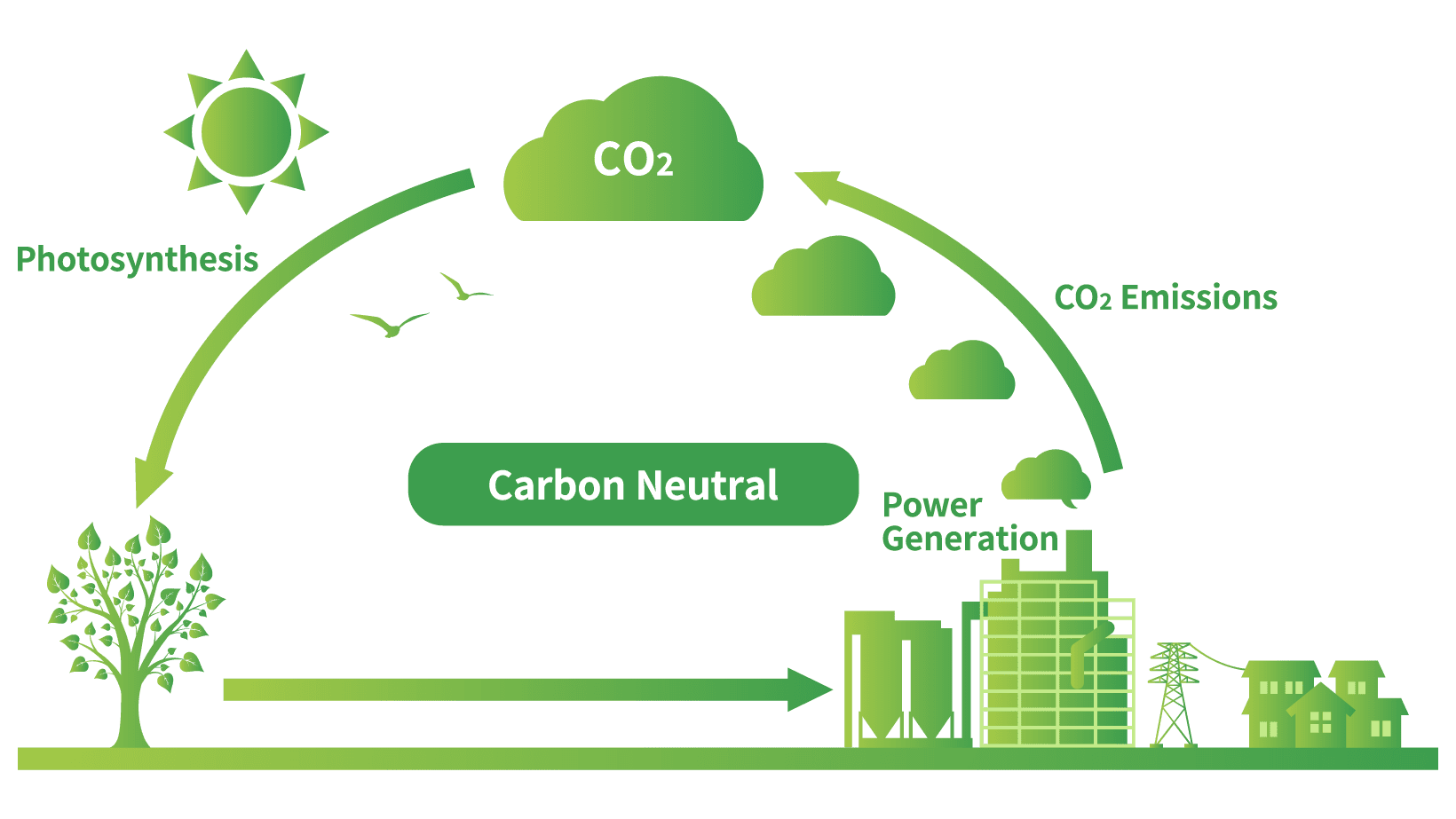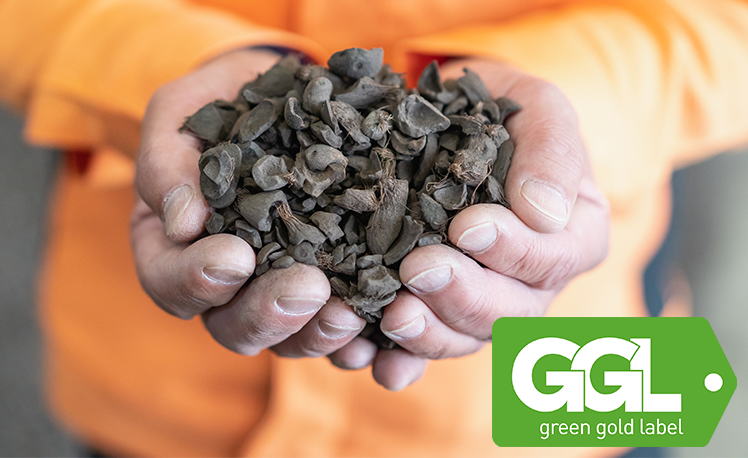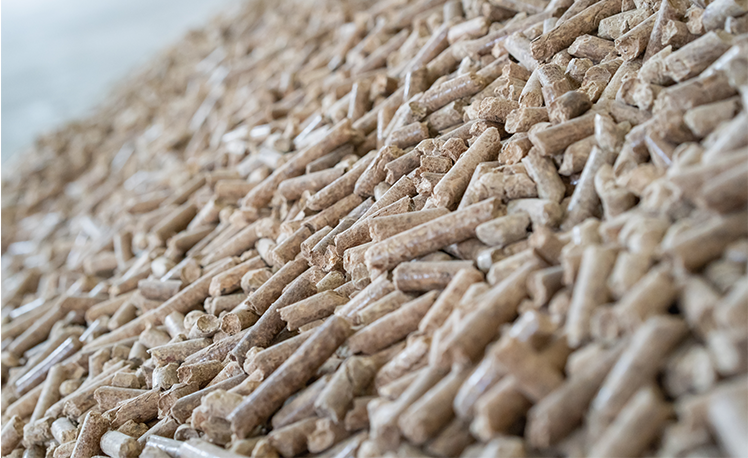Biomass fuel is a renewable energy source of biological origin made from wood, branches and leaves.
It is a "carbon neutral" fuel that does not actually affect the increase or decrease of CO2 in the atmosphere, as the amount of CO2 absorbed through photosynthesis, which occurs during the growth of raw materials, is offset by the amount of CO2 emitted through combustion. It also reduces waste by utilizing crop residues and unused wood materials.

PKS

PKS is the shell part of palm, a crop residue generated in the process of producing palm oil. It is attracting attention as a biomass fuel because of its low water content and high calorific value.
Regarding our in-house commercial distribution, we are working to obtain GGL (Green Gold Label) certification, a third-party certification, for each company involved in distribution to prove sustainability (legality) from the point where the fuel is generated (oil mill).
Regarding the commercial distribution from fuel importer trading companies and others, we provide distribution-related companies with the information and procedural support necessary to obtain third-party certification, and we also work on our own to confirm the distribution route from the point where the fuel is generated (oil mill).
Wood Pellets

Wood pellets are made by compressing and solidifying waste wood such as thinned wood and wood chips generated during sawing.
Only timber that has been certified as sustainable (legal) after sufficient care and verification is handled from the point where the fuel is generated, and all companies involved in distribution have obtained third-party forest certification such as PEFC, an international forest management standard, and FSC, which certifies that the timber comes from properly managed forests, based on the Forestry Agency's guidelines.
